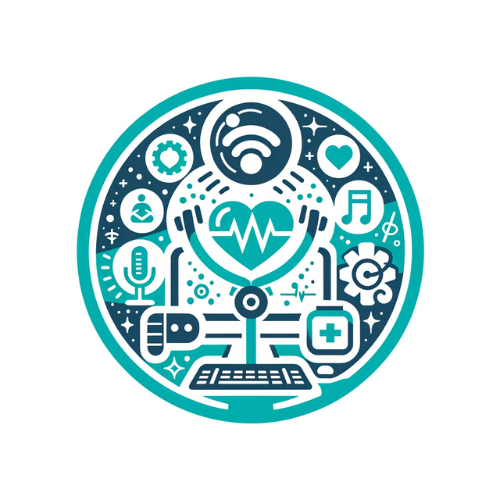Call us now:
USA News: Epilepsy Breakthrough Surgery Offers Hope for Teens Struggling with Ineffective Medication
Welcome to the USA news section, today we want to talk about Epilepsy Breakthrough Surgery Offers Hope for Teens Struggling with Ineffective Medication for Brain Health
Sometimes, life has an odd way of proving that the human brain doesn’t read the same instruction manual as the rest of our body.
One day, everything functions like a well-oiled machine, and the next day—bam!—we might find ourselves juggling unexpected health challenges, searching for answers that feel just out of reach.
This story about a teenager in Toledo, Ohio, whose medication stopped working, underscores how quickly life can pivot when the brain decides to play by its own rules.
In today’s post, we’ll explore how one teen’s journey led him to consider an innovative surgical procedure for epilepsy, offering a beacon of hope for all those grappling with medication-resistant conditions.
But wait—this isn’t just some run-of-the-mill report.
We’ll also dive deep into crucial aspects of mental and brain health, discussing strategies to cultivate holistic well-being, manage stress, and harness the power of mindfulness.
The overarching theme?
Empowering you to question your surroundings, your decisions, and even the neatly packaged labels that have found their way into your life.
The Teen’s Turning Point: When Medication Decides to Stop Working
At 10 years old, Isaac began experiencing unusual episodes where his head twitched, and his eyes shifted off to the side.
The initial diagnosis suggested a movement disorder, and for a long time, the medication seemed to work.
Then, one day, life pressed an unexpected reset button.
At 15, Isaac’s episodes returned, throwing his daily routine into chaos.
The fear of having a seizure behind the wheel kept him from driving; the ever-looming worry disrupted his focus in class.
Social outings started feeling like ticking time bombs, each one overshadowed by the thought: “What if something happens here?”
After consultations with multiple neurologists in Toledo, his family found that medication after medication brought no relief.
Another specialist suggested his actual condition might be epilepsy, not a movement disorder.
The final diagnosis came at the Cleveland Clinic, where surgeons discovered a grape-sized abnormality in his left cingulate gyrus.
This region, neatly tucked away in the middle of the brain, is a key player in emotional processing, behavior regulation, and even automatic motor functions.
Surgical Innovation: Is It as Scary as It Sounds?
Let’s be real: when you hear the words “brain surgery,” do you imagine a scene from a sci-fi thriller?
Or maybe you cringe and think, “No, thanks, I’ll pass.”
Ironically, for teens like Isaac, brain surgery can sometimes be the straightforward choice, especially if medications no longer keep seizures in check.
Neurosurgeons at institutions like the Cleveland Clinic now consider surgical options for epilepsy more often, yet the approach remains underutilized.
Despite the possibility that as many as 40% of epilepsy patients could be surgical candidates, only about 2,000–3,000 operations are performed yearly across the United States.
Why so few?
Misdiagnosis, access to specialized centers, or just plain apprehension often stand in the way.
Doctors may feel more comfortable prescribing yet another medication rather than suggesting a procedure that sounds intimidating.
Nevertheless, as the success stories accumulate, more parents and teens are willing to entertain surgery as a life-changing option.
Unveiling the Abnormality
Isaac’s surgical team discovered the “grape-sized” anomaly was actually cortical dysplasia, where brain cells have migrated irregularly during development, rather than a tumor.
Once removed, his seizures ceased.
Since that pivotal moment in March 2024, Isaac’s entire outlook has changed.
No more living in fear; no more missing out on crucial high-school moments.
He’s even looking forward to college, determined to make up for lost time.
A Glimmer of Hope for Others
Isaac’s journey highlights a critical message: just because a pill bottle is the first line of defense doesn’t mean it’s your last.
If traditional medications fail, surgical interventions can offer new beginnings.
Yes, the notion of surgery might make you want to hide under the bed—but consider this: when weighed against the heavy toll of living under constant siege from seizures or mental health issues, a controlled, targeted medical procedure can sometimes be the best friend you never knew you needed; because despite the fact we seem to evolve slower, even with AI being created since the 70s, we are in the 2024 and we should be asking to go beyond.
Holistic Well-Being: Why It Matters More Than Ever
The vibrant tapestry of our health extends far beyond scans and prescriptions.
In an age where teen stress levels are skyrocketing, whether related to academic pressures, social media comparisons, or the perpetual quest to “find yourself,” it’s worth acknowledging that holistic well-being isn’t just about minimizing seizures.
It’s about nurturing the whole person—mind, body, and spirit.
No matter your health journey—be it epilepsy, anxiety, or simply that sense of burnout—embracing the full spectrum of care means you’re ready to question societal norms, challenge medical advice, and trust your instincts.
Sometimes, that might mean exploring lesser-known treatment avenues, such as therapeutic mind-body exercises or strategic lifestyle adjustments.
Other times, it might mean forging your own path, merging science-backed interventions with a healthy dose of your own creativity.
Question Everything
Think for a moment about the influences shaping your daily decisions: TV morning shows, social media posts, or that friend who swears by the latest diet trend.
The irony?
We’re constantly told to label ourselves, yet rarely are we encouraged to step back and ask, “Who stands to benefit when I follow these rules?” or, “What if I unlearn these habits and truly discover my potential?”
This is where a holistic approach to brain health resonates.
It begs you to wrestle with what’s behind the noise.
It empowers you to say: “Maybe I don’t need to settle for a life half-lived.”
Combining cutting-edge medical interventions with practical strategies—like a sensible diet, an organized sleep routine, and a dash of personal branding—can steer you away from the pitfalls of fear-based living towards real happiness with love and freedom.
How Can I Avoid Anxiety?
It’s a question that echoes in the minds of both teens and adults who feel as if life’s to-do list grows by the hour.
Anxiety isn’t something you merely “deal with.”
You manage it, confront it, and, with consistent effort, learn to sidestep its program power trips.
Here are some strategies to keep anxiety in check:
- Establish a Routine: Predictability can be a calming force. Waking up and sleeping at consistent times helps your body align with natural rhythms. Plus, a routine minimizes chaotic transitions that often spike anxiety levels.
- Mindfulness Practices: Contrary to popular belief, mindfulness isn’t about chanting mystical words under a Bodhi tree. It’s about calmly observing your thoughts and physical sensations. Apps or simple breathing exercises can help create mental “safe zones.”
- Engage Socially: Isolation can magnify your worries. Spending time with friends, family, or supportive community groups reminds you that you’re not alone in this journey.
The Power of Personal Branding in Stress Management
We often think of “personal branding” as a concept reserved for corporate hotshots.
But consider the mental boost of recognizing your worth, your ambitions, and your unique attributes.
When you wake up every morning believing you have something special to offer—because you do—you’re less susceptible to stressors that might otherwise destabilize you.
Stress Management: Unraveling the Tension Knot
Stress is the ever-present sidekick to anxiety, an unwelcome intruder that stifles happiness if left unchecked.
While we can’t snap our fingers and vanish our problems, we can definitely transform our responses.
Let’s break down some effective stress busters:
- Exercise: Physical movement, be it a brisk walk or a dance session in your living room, floods your system with endorphins—the “feel-good” chemicals that help mitigate stress.
- Healthy Diet: Yes, comfort foods offer temporary relief, but a balanced diet supports overall brain function, improving emotional regulation and resilience.
- Consultation with Professionals: If your stress feels unmanageable, don’t wait. Seek help. Brain health experts can tailor coping strategies specific to your circumstances, ensuring you’re never alone in your battle.
Epic Tales and the Hero’s Journey
Ever wonder why we’re so entranced by stories of mythical heroes?
Because deep down, we sense that growth involves challenges, setbacks, and, ultimately, triumph.
If it feels like you’re stuck in the middle of a messy life chapter, remind yourself: this is the plot twist, a vital turning point where you decide how the next pages unfold.
Embrace your journey with a touch of humor, a sprinkle of bravery, and a boatload of curiosity about what you can become.
Meditation and Its Role in Brain Health
If you’ve ever felt your mind whirling like a thousand browser tabs open at once, meditation might just become your new best friend.
This ancient practice, spotlighted by modern research, offers concrete benefits for your brain’s architecture:
- Strengthening the Prefrontal Cortex: Frequent meditation can increase gray matter density in the prefrontal cortex, boosting decision-making and emotional regulation.
- Decreasing Activity in the Amygdala: Stress and fear responses often originate here. Meditation can help lower the amygdala’s overactivity, promoting emotional balance.
- Improving Attention and Cognitive Abilities: Sustained meditation practice helps your mind remain centered, improving focus and mental clarity.
These scientifically supported perks don’t just serve spiritual gurus sitting cross-legged on a mountain peak.
They’re available to anyone willing to dedicate a few minutes a day to reconnect with their thoughts.
If you can watch your favorite TV show for hours, surely you can spare some time to cultivate better brain health, right?
The Significance of Love, Freedom, and Society in Our Quest for Happiness
When you strip away the complicated jargon of medical tests and therapy sessions, the quest for well-being boils down to three pillars: love, freedom, and community.
Without these, even the grandest achievements feel hollow.
We’re not just talking about romantic love, but a broader, more inclusive form of connection—where compassion, empathy, and mutual respect are cornerstones of daily interactions.
Freedom implies the liberty to choose your narrative, unshackled from oppressive norms or stifling expectations.
And society?
It’s the magnificent tapestry of people who can support you, whether through a shared laugh or a thoughtful conversation in times of crisis.
Bridging Personal and Collective Growth
Imagine if we each used our gifts not merely for personal gain but to lift one another, fueling a ripple effect of positivity.
This synergy fosters better mental health, fosters innovative thinking, and, let’s be honest, makes life a whole lot more interesting.
So go ahead, critique your environment.
Ask the big questions.
Tweak your personal branding to reflect values that serve you and others.
Next Steps: Your Journey Toward Optimal Brain Health
If Isaac’s story highlights anything, it’s the power of taking a risk when the conventional path isn’t working.
Maybe you won’t need a surgical procedure, or maybe you will.
Either way, make it your mission to stay informed, challenge the boundaries set by doctors, educators, and—yes—even by your own mind.
Remember: the pursuit of brain health isn’t a solo expedition.
Working with professionals—those who offer credible, personalized strategies—can recalibrate your sense of control, reminding you that life’s plot twists need not be the final word.
Consult the Experts
Before you vanish into the next corner of the internet, allow me to nudge you toward a constructive action.
If you or someone you know struggles with brain health challenges—be it epilepsy, anxiety, or any mental health concerns—don’t just linger in uncertainty.
Consult with brain health experts to receive individualized guidance.
Schedule your appointment here: https://www.visitamedicaonline.com/agenda-tu-cita/
Empower yourself to reclaim a life of purpose and excitement.
The universe handed you the script, but remember: you’re free to rewrite it anytime.
Embrace Meditation, Community, and a Commitment to Personal Growth
There’s no one-size-fits-all formula for happiness, but there’s enough evidence pointing toward the value of a regular meditation practice, a sense of community, and an unwavering commitment to holistic well-being.
Integrate these elements into your own life, bit by bit, and you might find yourself rewriting chapters you once thought were set in stone.
At the end of the day, love, freedom, and society serve as keystones to building a life that is both fulfilling and resilient.
Combine those with advanced medical interventions when needed, and you’re en route to becoming the hero of your own story—no matter how many plot twists show up.
Respira, sana, evoluciona
Subscribe to The Brain Care Podcast
For more insights into brain health, personal development, and uplifting stories from everyday heroes, hop on over to: The Brain Care Podcast
Let’s keep the conversation flowing.
Don’t miss out on future updates about brain health breakthroughs, success stories, and compelling arguments for living life on your own terms.
Subscribe to our blog and stay connected as we navigate together toward a brighter, more mindful future in 2025 and beyond.
Bibliography
- Centers for Disease Control and Prevention (CDC). Mental Health Among Adolescents.
- CBS News. (December 21, 2024). When a teen’s medication stopped working, he decided to try a surgery that could stop his episodes for good.
- American Psychological Association. (2021). Understanding Anxiety and Fear




Your point of view caught my eye and was very interesting. Thanks. I have a question for you.